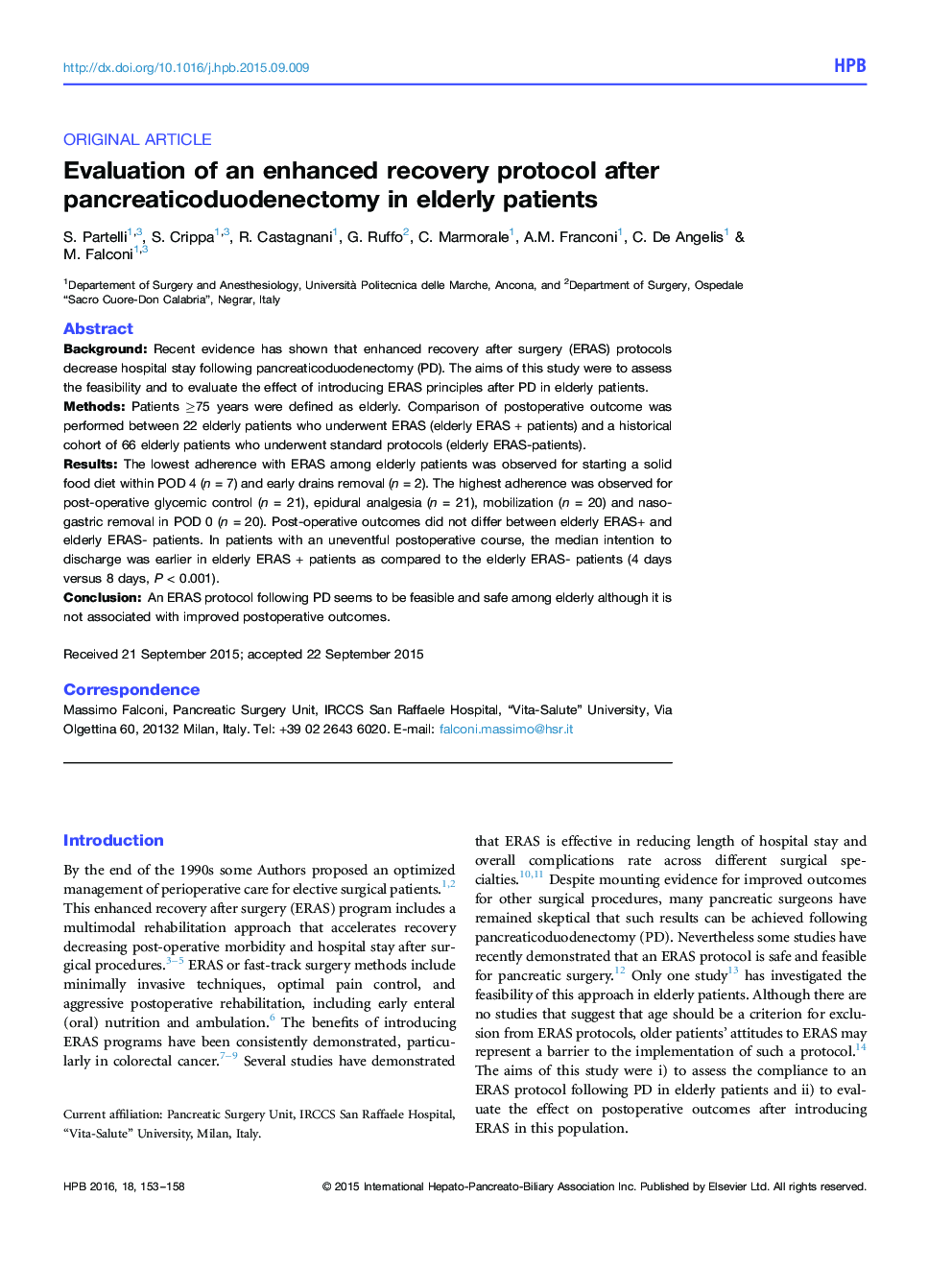| Article ID | Journal | Published Year | Pages | File Type |
|---|---|---|---|---|
| 3268502 | HPB | 2016 | 6 Pages |
BackgroundRecent evidence has shown that enhanced recovery after surgery (ERAS) protocols decrease hospital stay following pancreaticoduodenectomy (PD). The aims of this study were to assess the feasibility and to evaluate the effect of introducing ERAS principles after PD in elderly patients.MethodsPatients ≥75 years were defined as elderly. Comparison of postoperative outcome was performed between 22 elderly patients who underwent ERAS (elderly ERAS + patients) and a historical cohort of 66 elderly patients who underwent standard protocols (elderly ERAS-patients).ResultsThe lowest adherence with ERAS among elderly patients was observed for starting a solid food diet within POD 4 (n = 7) and early drains removal (n = 2). The highest adherence was observed for post-operative glycemic control (n = 21), epidural analgesia (n = 21), mobilization (n = 20) and naso-gastric removal in POD 0 (n = 20). Post-operative outcomes did not differ between elderly ERAS+ and elderly ERAS- patients. In patients with an uneventful postoperative course, the median intention to discharge was earlier in elderly ERAS + patients as compared to the elderly ERAS- patients (4 days versus 8 days, P < 0.001).ConclusionAn ERAS protocol following PD seems to be feasible and safe among elderly although it is not associated with improved postoperative outcomes.
